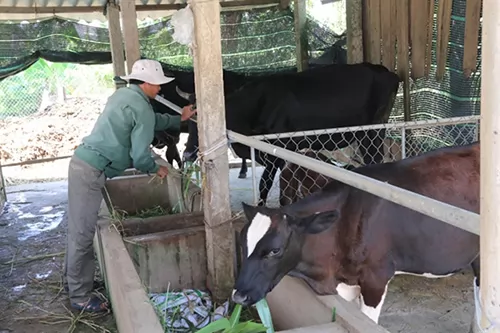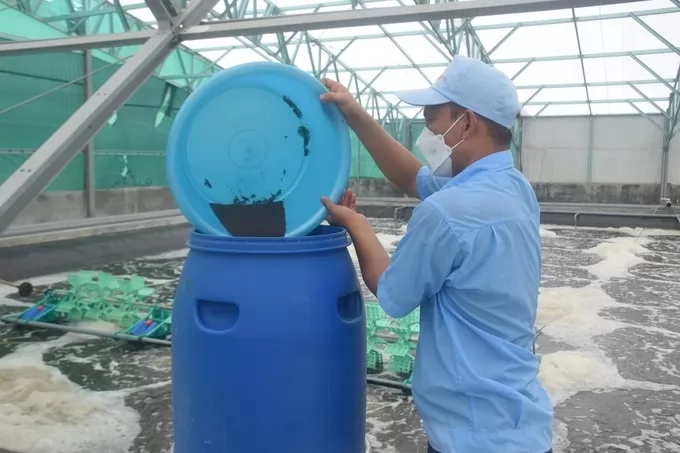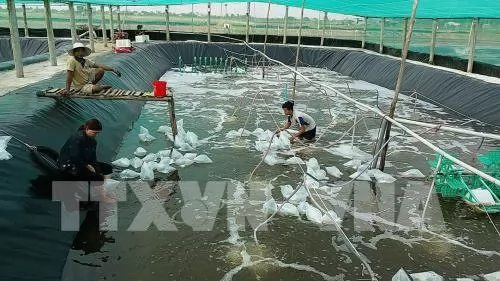Biotechnology to be made a focus in science and technology development scheme: conference
Viet Nam News / HÀ NỘI — Biotechnology will be promoted in the science and technology development scheme of Việt Nam, contributing to socio-economic development, said Dr. Phan Ngọc Minh, Vice President of the Việt Nam Academy of Science and Technology (VAST), at the nationwide biotechnology conference held on Friday in Hà Nội.
In his opening speech, Minh stressed that for many years, the academy has focused investment to build up research capacity in many areas of biotechnology, including genetic technologies, plant cell engineering, DNA testing and stem cell research.
Biotechnology is considered one of the three pillars of the fourth industrial revolution, alongside digital and physics breakthroughs, with profound implications on production processes and society as a whole, presenting challenges and opportunities alike for the development of nations, he added.
Chu Hoàng Hà, director of the Việt Nam Institute for Biotechnology, said that today, as the world is striving towards a green economy, “biotechnology plays a crucial role, if not to say, a decisive factor in the socio-economy of a country.”
Việt Nam has adopted many policies to promote the development of biotechnology from life sciences to the application of biotechnology in various export-centric fields of agriculture, fisheries, processing and the nascent bio-energy sector, Hà commented.

A farmer in Sơn La Province tends to his herd of Vietnamese native pig breed, the black Mường Khương. Native pig breeds which were faced with extinction and degradation are seeing hope as biotechnology progress allows more preservation and continuation of their genetic resources. — VNA/VNS Photo
Plant cell altering technologies, development of medicines from sea-based resources, new progress in stem cell research and utilisation potential in Việt Nam are to be prominent topics of discussion during the plenary session.
One of the many studies spotlighted at the conference deals with the preservation of native pig genetic resources and enhancing the success rate of in vitro fertilisation using native pig breeds’ sperms.
Dr Nguyễn Việt Linh from the Việt Nam Institute of Biotechnology said the Vietnamese native pigs, especially in the mountainous areas of the country, are a valuable genetic resource.
“However, against the influx of foreign breeds of pigs that are easily fattened and generate more output, native breeds are on a serious decline, even facing extinction,” Linh said.
Free-range native pork raised by ethnic people usually fetch higher prices compared to industrially farmed counterparts, thanks to their more pleasant taste and nicer meat texture.
The nationwide conference serves as a chance for scientists, researchers and the authorities to look back on the latest biotechnology achievements of Vietnamese science community and to put forward relevant research proposals in the coming time, Director Hà said.
The conference attracted some 450 authors with 300 reports.
Nearly 300 scientific studies with the greatest merit would be included in the conference proceedings. — VNS
Maybe you are interested

Mekong Delta develops beef, dairy farming
HCM CITY — Many provinces in the Cửu Long (Mekong) Delta have developed dairy and beef farming since it provides farmers with an additional income and benefits from local agricultural by-products.

Binh Dinh approves the policy to invest in shrimp hi-tech agricultural zone
(VAN) The total investment of Hi-tech Agricultural Park for Shrimp Development Project in My Thanh commune (Phu My district, Binh Dinh) is over VND 1,498 billion.

Kiên Giang has ambitious plans for industrial shrimp farming
Viet Nam News | HCM CITY – The Cửu Long (Mekong) Delta province of Kiên Giang has 2,000ha of industrial and semi-industrial shrimp farming models, or 79 per cent of its target for the year.





